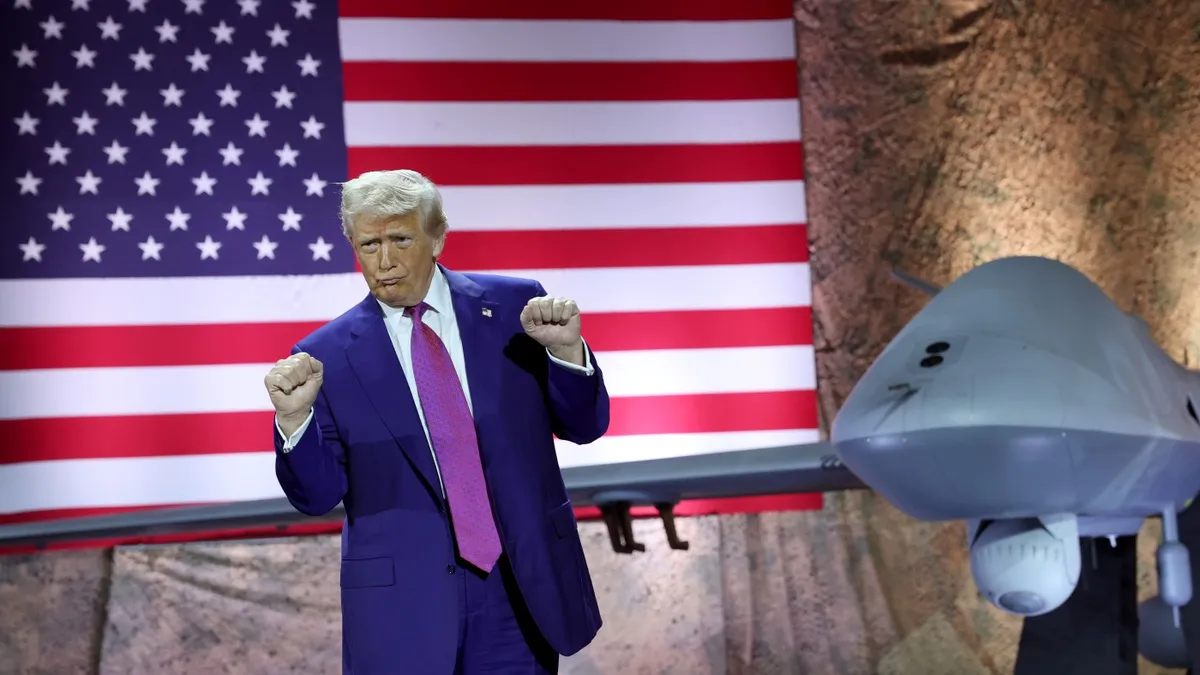
In a controversial statement made during his trip to the Middle East, President Trump suggested that the Gaza Strip should be transformed into a "freedom zone." This proposal comes as Israel intensifies its military operations, resulting in over 150 casualties, including many children, within a single day. The President's remarks, delivered while he was in Al-Udeid Air Base, Qatar, have sparked widespread criticism and concern.
While addressing reporters after a business leaders' roundtable in Qatar, Trump characterized Gaza as a "territory of death and destruction." He expressed his vision for Gaza, stating, "I have concepts for Gaza that I think are very good — make it a freedom zone." This notion aligns with the Israeli government's objective of permanently displacing Palestinians from the area to develop it into a seaside real estate project. Such proposals have been met with unanimous rejection from all Arab states, and Hamas has condemned them as a form of ethnic cleansing.
Trump's remarks coincided with a grim milestone, as the death toll of Palestinians in the ongoing conflict surpassed 53,000, with one-third being children, according to Gaza's health ministry. Hospitals have reported hundreds of deaths this week alone due to intensified Israeli airstrikes. The President described the devastation, stating, "There's practically no building standing. It's not like you're trying to save something."
Despite hopes for a ceasefire following the release of U.S.-Israeli hostage Edan Alexander by Hamas, negotiations have stalled. This release occurred just before Trump's arrival in the region and was the result of direct talks with the Trump administration, bypassing Israeli Prime Minister Benjamin Netanyahu. Hamas is seeking U.S. guarantees for a deal that would involve the release of remaining Israeli hostages in exchange for an end to hostilities and the withdrawal of Israeli troops from Gaza. However, Netanyahu insists on a temporary truce limited to freeing some hostages, with plans to resume military action afterward.
During his visit, Trump engaged with leaders from Saudi Arabia and Qatar, who emphasized the urgent need to end the conflict in Gaza. The Saudi Crown Prince made these remarks at a Gulf Arab leaders' summit, while Qatar's ruling emir raised the issue during Trump's arrival in Doha. Meanwhile, Israel is preparing for a significant military offensive in Gaza, having called up tens of thousands of reservists.
Israel is also set to implement a U.S.-backed plan to distribute food rations to Palestinians who would be forcibly relocated to smaller areas in southern Gaza. This initiative has been met with refusal from U.N. organizations and various aid groups, who argue that it would further endanger the Palestinian population. Israel's blockade of Gaza, which has lasted over two months, has severely restricted access to essential supplies like food, fuel, and medicine, pushing half a million people to the brink of starvation, according to independent experts.
Aside from the humanitarian and military aspects, Trump's visit to the Gulf has been heavily focused on securing multibillion-dollar investment deals aimed at boosting U.S. companies. Notable agreements include a recent order from Qatar for up to 210 Boeing airplanes. His discussions also covered technology and AI contracts during his stop in Saudi Arabia, with the majority of investments centered around U.S. defense and weaponry.
Trump addressed thousands of U.S. service members stationed at the Al-Udeid Air Base, delivering remarks akin to a campaign rally. He falsely claimed victory in the 2020 election and criticized the Biden administration. "You are, without a doubt, the greatest fighting force in the history of the world," he declared, adapting his campaign slogan to suggest that the military was making America great again. The sprawling air base has been a critical site for U.S. military operations in the region.
As Trump's Gulf tour comes to a close, the situation in Gaza remains dire, with urgent calls for humanitarian assistance and a cessation of hostilities becoming increasingly necessary.